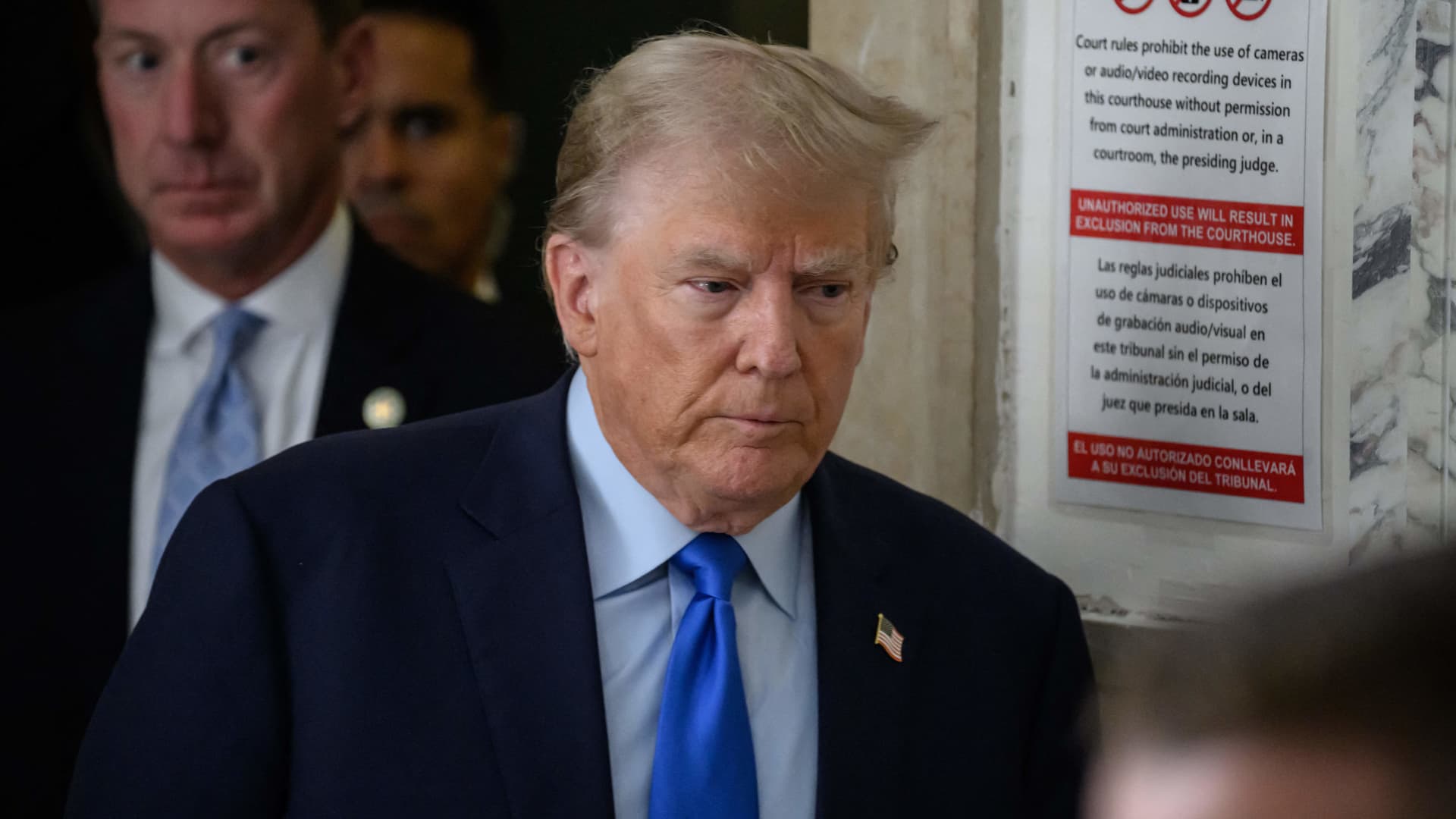Former US president Donald Trump arrives to the court room following a break at the New York State Supreme Court on the first day of his civil fraud trial, in New York City on October 2, 2023.
Ed Jones | AFP | Getty Images
Attorneys for Donald Trump on Wednesday said the former president and his co-defendants plan to post a $100 million bond in a bid to pause enforcement of their civil fraud judgment — though that is just a fraction of the total amount that they have been ordered to pay.
To secure a “complete” appeal bond would be “impossible,” the defense lawyers wrote in a court filing to the appellate division of Manhattan Supreme Court.
The filing came two days after Trump appealed Judge Arthur Engoron’s ruling finding him, his two adult sons, his company and its executives liable for submitting fraudulent information on key financial statements.
Engoron ordered the defendants to pay a total of $464.6 million in fines and interest. Trump’s total judgment was more than $454 million. The penalties interest so far added another $98 million. This interest continues to accrue at a 9% annual rate, adding nearly $112,000 a day to Trump’s bill alone.
Engoron’s judgement also barred Trump from running a business in New York for three years, or applying for loans from financial institutions registered with the state during that period.
Trump’s attorneys noted in Wednesday’s filing that a surety bond agency will often set the bond amount at 120% of the judgment, in order to account for interest and appeal costs. In this case, the bond could be worth upwards of $550 million.
“The exorbitant and punitive amount of the Judgment coupled with an unlawful and unconstitutional blanket prohibition on lending transactions would make it impossible to secure and post a complete bond,” they wrote.
“Appellants nonetheless plan to secure and post a bond in the amount of $100 million.”
That amount would be enough to “adequately” secure a stay of the judgment, they wrote, because it would be coupled with the oversight measures relied on by the office of New York Attorney General Letitia James, who brought the case.
The defense attorneys also noted that their clients’ vast real estate holdings in New York are being overseen by a court-appointed financial monitor in order to “preclude any dissipation or transfer of assets.”
That oversight alone would be “sufficient to adequately secure any judgment affirmed,” they wrote. “Appellants’ bond would simply serve as further security.”
This is developing news. Please check back for updates.





















Discussion about this post